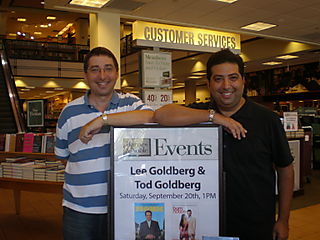Variety reports on a slew of remakes and sequels today. Disney has signed Johnny Depp for a fourth PIRATES OF THE CARIBBEAN movie and he will play Tonto in a new LONE RANGER flick (honest, he will!). Warner Brothers is bringing back Will Smith in a prequel to I AM LEGEND. And Sony TV and Geffen Records are developing a remake of THE PARTRIDGE FAMILY, which will be written by Jeff Rake of CASHMERE MAFIA.
Kick Ass Action
…from the season opener of the hit TV series ALARM FOR COBRA 11 from my friends at Action Concept in Germany.
PSYCH Out
 Here's a sneak peek at the cover for A MIND IS A TERRIBLE THING TO READ by William Rabkin, the first in a new series of original novels based on the TV series PSYCH. The book comes out in January from Obsidian, the fine folks who published the MONK and BURN NOTICE tie-ins. (You can click on the photo for a larger image).
Here's a sneak peek at the cover for A MIND IS A TERRIBLE THING TO READ by William Rabkin, the first in a new series of original novels based on the TV series PSYCH. The book comes out in January from Obsidian, the fine folks who published the MONK and BURN NOTICE tie-ins. (You can click on the photo for a larger image).
TV Main Title of the Week – Special Edition
(Thanks to my cousin Danny for the link)
Brilliance

Aaron Sorkin imagines in yesterday's New York Times what it would be like if Barack Obama had a sit-down with President Jed Bartlet. It begins like this:
BARACK OBAMA knocks on the front door of a
300-year-old New Hampshire farmhouse while his Secret Service detail
waits in the driveway. The door opens and OBAMA is standing face to
face with former President JED BARTLET.
BARTLET Senator.
OBAMA Mr. President.
BARTLET You seem startled.
OBAMA I didn’t expect you to answer the door yourself.
BARTLET
I didn’t expect you to be getting beat by John McCain and a Lancôme rep
who thinks “The Flintstones” was based on a true story, so let’s call
it even.
OBAMA Yes, sir.
BARTLET Come on in.
Me on Me
Writer/producer/screenwriter David Simkins (DRESDEN FILES, BRISCO COUNTY, ADVENTURES IN BABYSITTING, etc.) and writer/producer/author Marc Scott Zicree (TWILIGHT ZONE COMPANION, MAGIC TIME, SLIDERS etc.) came over to my house and interviewed me for their on-going podcast conversation about tv, movies, and sci-fi.
staffed shows, ran shows, written, directed and produced them in the
U.S. and Europe. And if that’s not enough, he’s also a published
novelist. Next up: splitting the atom. Listen in.
Under their intense interrogation ("Hello, Lee, how are you?"), I don't shut up for an hour-and-a-half.
Lee & Tod at Barnes & Noble

My brother Tod and I signed our new books (MR. MONK GOES TO GERMANY and BURN NOTICE: THE FIX) at Barnes & Noble in Calabasas today. It will be our last event together until Men of Mystery in November. I'll let Tod tell you about the Really Stupid Conversation he had with an aspiring author…I have no doubt at all that he will be blogging about it in excruciating, and hilarious, detail. I practically bit through my tongue so I wouldn't laugh.
The store is a block from my house, so a lot of my neighbors showed up, which was nice, and so did actor Matt Kaminsky (who I have killed once on DIAGNOSIS MURDER and once on MARTIAL LAW), TV writer and blogger Lisa Klink, B&N's West Coast Regional Community Relations Director Jan Lindstrom (who treated me to a lovely lunch), KTLA's Stephanie Edwards, and my sister Linda, who took this picture (I don't know what looks worse, letting my bad arm hang at my side or hiding it behind my back, where it looks like I am scratching my ass. If I was smart, I would have just put my hand in my pocket).
We sold a bunch of books but there are still plenty of signed copies on hand if your travels take you to Calabasas, or if you are one of the TMZ or tabloid photographers who hang out in the parking lot 24/7 waiting for Jessica Simpson, Pamela Anderson, Jennifer Aniston, Adam Sandler, Angelina Jolie, or any of the other stars who shop at The Commons.
The Worst Bond Theme Ever
Here's "Another Way to Die," the main title theme from QUANTUM OF SOLACE, performed by Alicia Keys and Jack White. I hate it. The Los Angeles Times likes it more than Chris Cornell's "You Know My Name" from CASINO ROYALE, but that's not saying much.
recognizable Bond theme, not by anything new offered in the song. And
Keys, usually a relatively bold, in-your-face R&B singer, seems
oddly tamed here, her voice not meshing well with White's yelled
warble. In her defense, it's hard to not sound silly when you sing,
"Suit 'em up, bang bang!" And there's some odd, out-of-place sudden
electronic textures here and there, resulting in an overly-crowded song.
This song is so hideous it almost makes Ah-Ha's "The Living Daylights" and Lulu's "Man with the Golden Gun" seem like classics by comparison. "Another Way to Die" is much more suited to a Coke Zero advertisement than James Bond main title, as you can see for yourself:
The Mail I Get
This email is so stupid, that I have to wonder if it was sent as a prank:
Although I have my doubts that the email is legit, I answered it as if it was. Here is what I said…
Why on earth would I, the author of the MONK novels, be interested in reading your MONK novel? Would you send a spec Spenser novel to Robert B. Parker? A spec Inspector Rebus novel to Ian Rankin? A Harry Bosch novel to Michael Connelly? Not that I am comparing myself to Parker, Rankin or Connelly, I am not in their league…I am just trying to make a point about how idiotic your request is. I can't imagine how you could have thought that it was a good idea.
Then again, I can't imagine why you would write an entire novel on spec about a character you didn't create and don't own. I didn't create MONK, either…nor did I write a MONK novel on spec. I was hired by the creator of MONK and Penguin/Putnam to write MONK novels for them ..and now I have a multi-book deal that makes me the exclusive author of the books for several years to come.
I recommend that you write original novels that are NOT based on any pre-existing movie or television property. Tie-ins novels are assignments given to established writers by publishers who have licensed the characters from the studios…you don't simply send in a spec HOUSE or THE CLOSER novel to a publisher and hope for a sale.
On top of that, why would you send a novel to another author in the hopes of getting a job (not just any job, but his job)? Authors don't hire authors, publishers and editors do.


